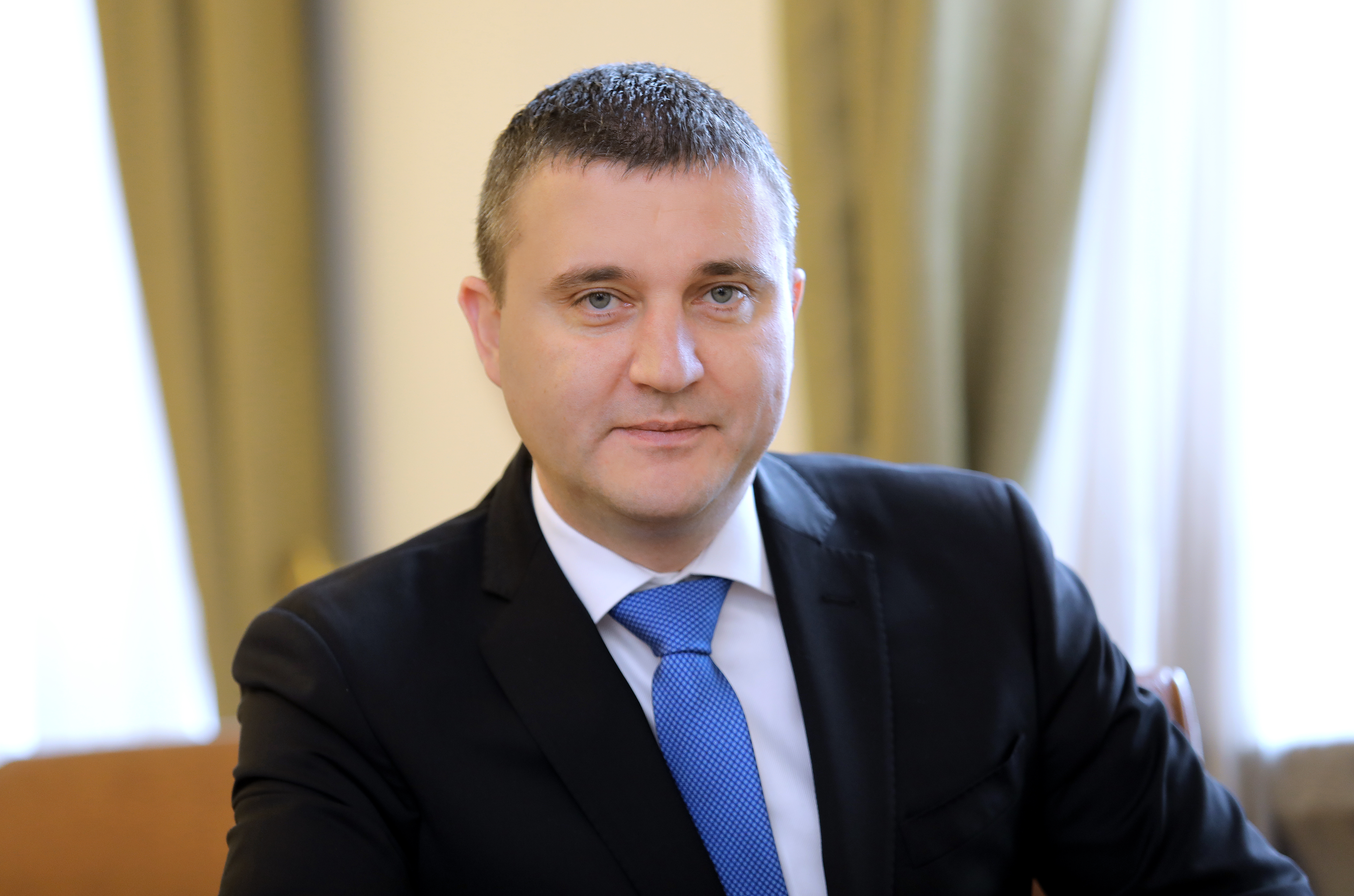VLADISLAV GORANOV: TODAY, BULGARIA WILL SUBMIT A REQUEST TO ENTER INTO A CLOSE COOPERATION WITH THE ECB ON BANKING SUPERVISION

19.07.2018
“In a few hours, we will send the official request to enter into a close cooperation with the ECB in accordance with Regulation (EU) No 1024/2013, signed by the Minister of Finance in accordance with the mandate given to me today by the Government.” Minister for Finance Vladislav Goranov said the above after the end of the Council of Ministers’ meeting. Today’s formal decision is the result of long-standing communication between the Bulgarian authorities and the euro area countries, the European Commission and the ECB as part of the roadmap for the accession of Bulgaria to the euro area and of the Bulgarian lev to the ERM II, he pointed out
On 12 July 2018, euro area Member States and Denmark, which has joined the ERM II, supported the position whereby from now on all Member States that are willing to join the euro area and before that the ERM II respectively, are required to establish close cooperation with the ECB on banking supervision, Minister Goranov recalled.
As a result of our request the ECB will launch a study as to the extent to which our legislation will be adapted so that the ECB’s supervisory decisions to have legal effect and to be directly applicable to those Bulgarian banks for which the Bank decides that it would like to directly exercise supervisory functions, explained the Minister of Finance. “According to the rules, such study lasts from 6 to 12 months, depending to a large extent on whether we will manage to quickly adapt the national legislation in order to ensure the stability of the ECB acts and their enforceability in the national legislation and the national macro-prudential legal framework”, Goranov added.
Today, in addition to the formal request to enter into a close cooperation with the ECB on banking supervision, our country will also send a draft to amend the Bulgarian legislation whereby we will state our vision as to how Bulgarian legislation must be changed in order to meet the requirements of the Regulation. Within the time period under the Regulation – from 6 to 12 months, if the ECB approves the implementation of close cooperation and we meet the additional commitments which we have described in the letter dated 29 June 2018, Member States have stated that they would support the accession of the Bulgarian lev to the ERM II, Minister Goranov clarified. Our country has been under a currency board arrangement for more than 21 years now and the effects of the ECB’s policy on the Bulgarian economy have to a large extent been used; therefore, the natural course for our country, stated by almost all political forces, for leaving the currency board system is to enter the euro area, he also said.
What we received as a position of the Eurogroup on 12 July in Brussels is an extremely positive sign for our country because, for the first time since we have joined the EU, euro-area Member States have explicitly committed themselves to specific deadlines and specific decisions on the Bulgarian perspective for the euro area, Minister Goranov clearly pointed out. When we join the euro area we will start participating in the decisions related to the monetary policy of the EU and this is one of the smallest benefits that we will receive, apart from the increased confidence in our economy, the reduced transaction costs for businesses and all other advantages that this club of rich and developed countries ensures in terms of stability and success for a small and open economy like the Bulgarian one, the Minister also said. “I have the assurances of our European partners that although part of the criteria laid down in our letter of intent are hard to measure we will be treated as partners as well as that the only thing required from us is to manage to prove that we are able to follow the rules according to which the euro area functions.”
In reply to a journalist's question, the Minister of Finance said that the study period involved a bank asset quality review, assessment by the ECB as to the good health of the current banking system, for which Minister Goranov pointed out that he didn’t have any concerns because the rules and the macro-prudential requirements, even though they were currently carried out by BNB as regards supervision, were the same for EU countries. The ECB will decide which banks would go directly under its supervision and it will take this decision over these 12 months when an assessment will be made as to whether and when we will be ready to implement close cooperation on banking supervision, the Minister said. This will enter into force and take effect when we conclude an agreement with the ECB, following a positive decision by the Bank that we are ready to do so, he commented.
“If we can talk about partnership treatment by the euro area countries, we have agreed with them that Bulgaria will simultaneously enter into close cooperation with the ECB on banking supervision and in ERM 2. If we manage to meet our commitments, this is expected to happen in the middle of next year,” Vladislav Goranov said in conclusion.